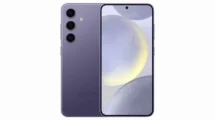Scientists have developed an interface which can help in deciphering the thoughts of subjects who are paralyzed and unable to talk. The latest interface helped four patients with completely locked in syndrome (A condition where the patients are incapable of moving even their eyes to communicate) to use thought waves to respond to questions in affirmative or negative.
Locked in Condition is a state in which the subject is not able to even move his eyeballs. It is a very depressing state, and scientists associated with the research project are perfecting a non-invasive brain-computer interface (BCI), which can revolutionize the lives of such patients. If successful it will allow such patients to express their emotions and feeling to their loved ones. The questions which were put to the subjects were designed to elicit affirmative or negative answers. The questions included questions like “Is your husband’s name is ****? Or “Are You Happy?”
The researchers also found that patients with such conditions were satisfied. The results also overturn the concept that such patients are incapable of communicating or expressing their emotions. It also negates earlier beliefs that completely locked-in syndrome patients do not have a goal-directed thinking which is essential for the proper functioning of brain-computer interface
The revolutionary research is being conducted under the leadership of Niels Birbaumer, a neuroscientist at Switzerland’s Wyss Center for Bio and Neuro-engineering.
The process involves a synergy of near-infrared spectroscopy and electroencephalography. The process measures blood oxygenation and electrical activities. The interface measures the changes in the above two parameters while answering in affirmative or negative and then developed its pattern. After a while, the computer can calculate the answer. Scientists are now planning to continue the research and develop an effective interface which helps patients with paralysis caused by amyotrophic lateral sclerosis, stroke or spinal cord injury.





